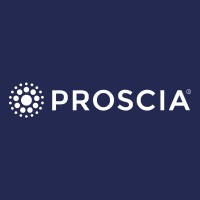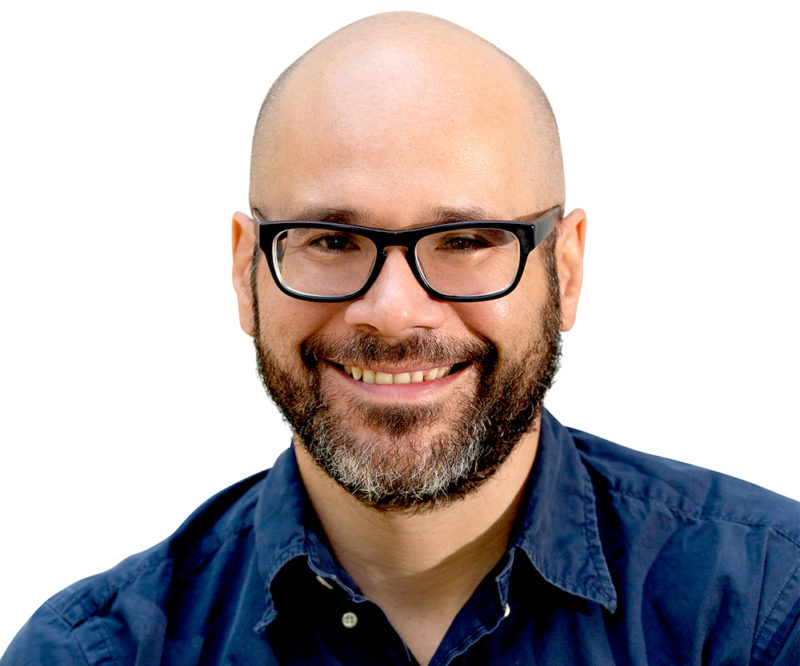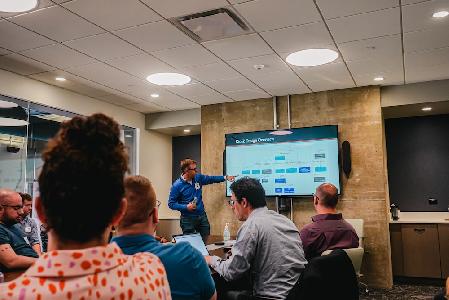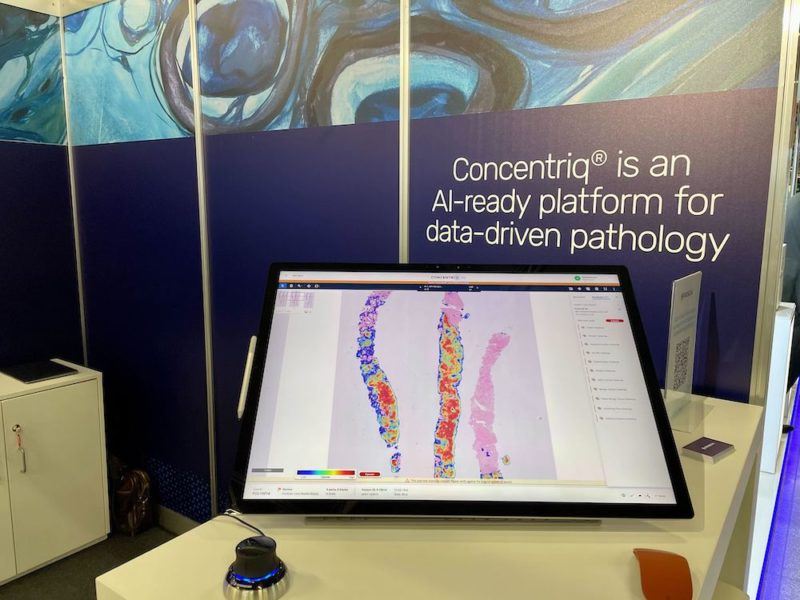
This article is sponsored by Proscia and was reviewed before publication. Proscia is a Technical.ly Talent Builder client.
For patients receiving medical care for cancer, a diagnosis marks the beginning of their journey. Proscia, a Center City-based company, is on a mission to change the way the world practices pathology — which sits at the core of making a diagnosis — with digitization and artificial intelligence.
“At Proscia, we’re working to help pathologists improve cancer diagnosis so that they can accelerate turnaround times and get the best results to patients,” said Sean Grullon, the lead AI researcher at Proscia.
The company’s products include Concentriq, its digital pathology platform, and a variety of AI tools. In October 2021, Proscia released the results of a study that examined the technology that powers its DermAI.* Conducted at Thomas Jefferson University and University of Florida, the study affirmed Proscia’s AI identified melanoma, the deadliest form of skin cancer, with a high degree of accuracy.
Proscia’s AI team is split between its engineering team and its research team. Grullon heads the research team, developing the strategy that informs the engineers’ development of Proscia’s AI tools.
Grullon, who has a 12-year background in particle physics research, joined Proscia in March 2021. What drew him to the fast-growing, venture-backed company? He said one main thing came to mind — the mission.
Technical.ly spoke with Grullon about his professional path, his current role and the implications of artificial intelligence’s use in healthcare. (Spoiler: he’s pro-AI.)
###
First off, how did you start working in AI?

Sean Grullon. (Courtesy photo)
I fell into AI by accident. I originally moved to Philadelphia to become a physics professor. I have a Ph.D. in particle physics, which is a pretty abstract view of physics that just tries to understand what the universe is made of. Then, I decided I didn’t want to be in academia anymore for a variety of reasons, but I wanted to stay in Philly. I was lucky because around then, the field of AI in life sciences and healthcare really started to take off.
How’d you make that jump from physics to AI?
A lot of the mathematics behind AI and its algorithms are very similar to the mathematics that drive many physics applications. The irony of particle physics is in order to study things that are really small, you have to build things that are really big, and the really big things that you build collect a lot of data. So, I’ve had some experience with machine learning and different data algorithms from my academic career in physics.
I read research papers for more background information, and I also packaged some of my physics work so I could use it as an example for future employers when I was first applying to jobs in this field.
Tell me more about the AI research team at Proscia.
Right now, I have four direct reports. We use the Agile system of working, and I like to give them space to complete their projects. We stay in touch with daily 15-minute team standups and biweekly one-on-ones.
As their manager, I believe in empowering my team. In the spirit of Proscia’s entrepreneurship, I want to encourage everyone on the team to feel ownership over the company and the direction of the company. They’re not working for me, right? We are collectively working together to support this mission.
As someone who works in this space everyday, what does AI in healthcare mean to you?
When you talk about AI in healthcare, there is a perception of robot doctors replacing real doctors and fears of what happens in science fiction movies. But the reality is that AI is here to help doctors. In fact, there’s a shortage of doctors, and AI can enable them to focus their time where it matters most.
This is especially true when it comes to pathologists. Pathologists are really important because they’re the folks who look at a biopsy to determine if it’s cancerous or not, but the population has been steadily declining for years. AI can help them to work more efficiently, and time is of the essence, especially when it comes to cancer.
It’s not a direct comparison, but it’s like how Google Maps makes you more efficient in finding directions to get from home to work. That’s more efficient than using a printout map, right? That’s what we’re doing, but instead we are helping pathologists be more efficient in the interest of patient care. That’s one of our main goals at Proscia.
*DermAI is for research use only.
Explore jobs at ProsciaJoin the conversation!
Find news, events, jobs and people who share your interests on Technical.ly's open community Slack

Philly daily roundup: Student-made college cost app; Central High is robotics world champ; Internet subsidy expiration looms

Philly daily roundup: Earth Day glossary; Gen AI's energy cost; Biotech incubator in Horsham

Philly daily roundup: Women's health startup wins pitch; $204M for internet access; 'GamingWalls' for sports venues


